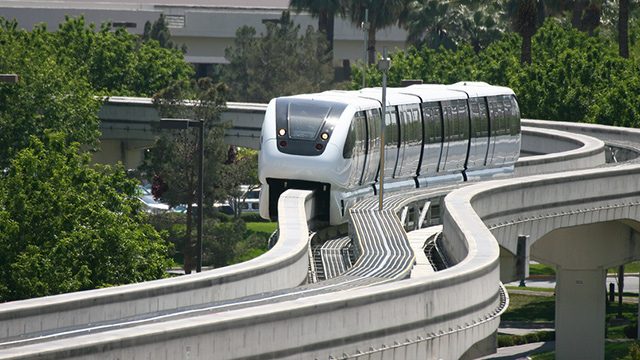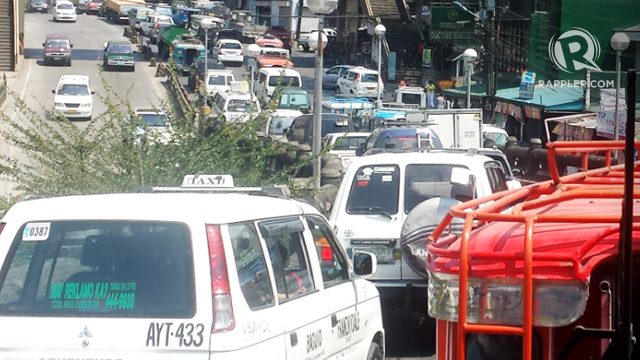SUMMARY
This is AI generated summarization, which may have errors. For context, always refer to the full article.

BAGUIO CITY, Philippines – Strawberry picking in La Trinidad, Benguet, may become more appealing to tourists once travel from Baguio City to the town is made easier through a monorail, results of a feasibility study showed.
The proposed monorail aims to address the perennial vehicular traffic in Baguio City and the nearby town of La Trinidad.
Based on the initial results of the study, it would cost at least P1.4 billion ($31.03 million) to develop the monorail system.
The cost would cover the construction of 5.2 kilometers railing system from the Slaughter House in Magsaysay, Baguio, to the Benguet Provincial Capitol. It would also cover the installation of coaches and other equipment to complete the monorail, Department of Science and Technology (DOST) Regional Director Julius Ceasar Sicat said in an interview Wednesday, June 17.
The result of the feasibility study, conducted in a span of one year, was presented to the DOST Cordillera earlier in April by the contracted private partner, Transport and Traffic Planners Incorporated (TTPI).

Why monorail?
The study recommends 6 coaches with 120 passengers per coach. Based on the study, the monorail has a maximum carrying capacity of 720 passengers per travel, Sicat said.
“Final results and additional information will be submitted by TTPI by end of July 2015, and we will start coordinating with the two local government units,” Sicat said.
The regional director added that the DOST-Cordillera Administrative Region (CAR) held a meeting with the National Development Corporation in February for the technical and financial aspects of the project.
“The monorail is environmentally-friendly because it will utilize electricity instead of crude or petroleum,” Sicat added.
The agency plans to begin the project by 2016.
Be considerate
In December 2013, the Metals, Industry, Research, and Development Center of the DOST and the Baguio City government entered into a memorandum of understanding for the conduct of a study on the possible use of mass transport system in the city, particularly tramline and monorail.
Called the Road Network Technology, Baguio City Mayor Mauricio Domogan said the study aims to find solutions to traffic woes. He added that the mass transport system will likely decrease air pollutants from vehicles.
However, Domogan called on the representatives of the DOST-CAR to consider the concerns of people working in the transport sector that may be affected by the project, particularly those in the public utility vehicles (PUVs) like jeepneys.
“We also should consider what alternative work or livelihood we can give them if this project eventually materializes,” Domogan stressed, referring to PUV drivers.
He encouraged transport groups in the city to organize themselves and join the bidding for the public-private-partnership, which will likely be the mode in implementing the project. – Rappler.com
$1 = P44.12
Add a comment
How does this make you feel?
There are no comments yet. Add your comment to start the conversation.